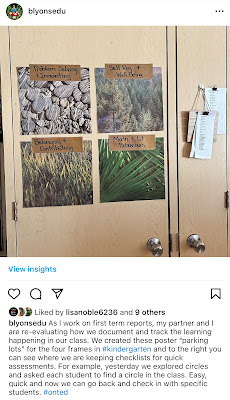Where has March gone? Eeeek.
I have been thinking about this word since I finished off my February post about the word list. Routine is another word that has become a big part of both my personal and professional life. I’ve noticed that has I’ve gotten older that small routines- like eating the same thing for breakfast most days, taking my vitamins each morning before my coffee, hand cream and eye cream before bed, etc- have become not necessarily more important to me but make the day feel easier.
Interestingly, I was called a perfectionist earlier this year and I strongly reacted to that. I do not feel that I am a perfectionist. The dictionary defines a perfectionist as-
noun- a person who refuses to accept any standard short of perfection.
https://g.co/kgs/wAAM9NN
This does not describe me. I like to have a plan for things, for a lesson or activity, for my day but if something changes and we need to be flexible I have no problem changing the plan or rolling with a new idea.
A few of my colleagues and I were talking about this and one asked if I would describe myself as easy going and my initial reaction was no. Easy going is defined as-
adjective- relaxed and tolerant in approach or manner.
https://g.co/kgs/CEK1jtJ
I think because I do like to have a plan in place, I like to be prepared ahead of time and I rarely approach anything without having thought it through that easy going can’t really be used to describe me either.
So what’s in the middle of perfectionist and easy going? Is it a love for routine?
I posted awhile back on IG about my use of digital weekly plans that allows me to hyperlink resources and use images to plan for read alouds that are shared with my class. You can see the picture here- https://www.instagram.com/p/C3ybsiYxzxb/?igsh=OTBldjgzcWpyMWZm
Having this template for my weekly plans (and daily plans last year in Grade 3 when the day was filed with different subjects and content areas, and therefore more “lessons” needed planning) helps keep me organized and small things are not forgotten. I can list weekly or daily to-do lists. I can use shapes and colours to insert routine reminders like library visits, assemblies, etc.
Working with kids of all ages for as long as I have you start to notice that kids also thrive on routine. Many kids like to know what’s coming next and when. It’s why the pandemic was so hard for so many us. We didn’t know what was coming next and days bled into each other. In our kindergarten class we keep most days to a pretty similar routine and share early with the students if something is going to change. Fewer transitions during the day are key at this age to keeping the peace so we plan for longs blocks of outdoor play in the morning and free play in the afternoon. We have one small friend who had a lot of difficulty with coming to school in the fall and he would regularly check our visual schedule each day and often checked in with us about when it was home time.
I think routines provide comfort and much like a list they download information from my brain so I’m not focused on a thousand little things. I can focus on the big things. I can pay attention to what’s happening in the moment, whether at school or at home.
What routines do you have in your life? At school or at home? How do they help you?

.PNG)







